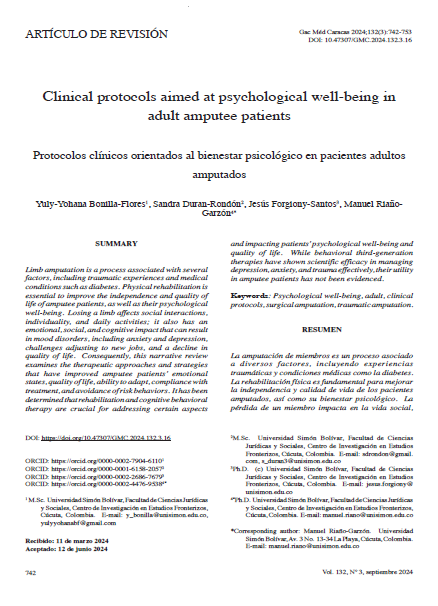Clinical protocols aimed at psychological well-being in adult amputee patients
Contenido principal del artículo
Resumen
Limb amputation is a process associated with several factors, including traumatic experiences and medical conditions such as diabetes. Physical rehabilitation is essential to improve the independence and quality of life of amputee patients, as well as their psychological well-being. Losing a limb affects social interactions, individuality, and daily activities; it also has an emotional, social, and cognitive impact that can result in mood disorders, including anxiety and depression, challenges adjusting to new jobs, and a decline in quality of life. Consequently, this narrative review examines the therapeutic approaches and strategies that have improved amputee patients’ emotional states, quality of life, ability to adapt, compliance with treatment, and avoidance of risk behaviors.
Descargas
Detalles del artículo

Esta obra está bajo una licencia internacional Creative Commons Atribución-NoComercial 4.0.
